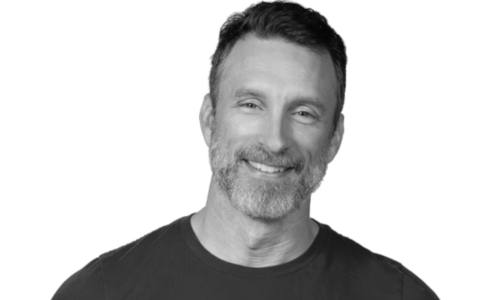What do you do when you’re an entrepreneur and your first two businesses go swimmingly well, so much so, you start a third and end up bankrupt?
Do you admit defeat and go and get a ‘real job’? Or do you shake yourself off and decide you’re going to dedicate the rest of your working life to the commitment to eradicate entrepreneurship poverty?
If you’re Mike Michalowicz you do the latter.
Mike is an entrepreneur and author. He built two incredibly successful tech businesses and exited them for a lot of money. But his third venture as an angel investor, didn’t go so well.
However, it was off the back of this failure that he found his subsequent life’s mission, as an author.
“I was making it [entrepreneurship] more complex than necessary and I was confused about what worked or not, so I endeavoured that day, that the rest of my life I’d devote to studying entrepreneurship and simplifying it.”
Mike’s latest book, Profit First, is what he talks about in this episode (although of course, he touches on his journey to get to this point). Because profit in a post-COVID world is something that businesses and entrepreneurs are really going to need to focus on to survive.
Rather than putting profit last or talking about ‘the bottom line’, we have to put profit first. We have to extract value from our businesses and reinvest it in a really deliberate way.
This is a really interesting conversation about a topic close to all entrepreneurs’ hearts. We hope you enjoy it as much as we did.
On today’s podcast:
- Why Mike wrote Profit First
- The advice Tim Ferriss gave him
- How Profit First can help small businesses
- The fascinating thing about consumer behaviour
- The business hierarchy of needs
- People speak the truth through their wallets
Putting Profit First with Mike Michalowicz
So many entrepreneurs start their business with the intention of creating financial freedom, to do what you want when you want and not to have to worry about paying bills. But ironically, the biggest worry is the bills.
Mike Michalowicz is a lifelong entrepreneur. He built and sold two very successful tech businesses, but it was his third venture, as an angel investor, that saw him lose everything and become bankrupt. And while it didn’t happen overnight, Mike picked himself up, dusted himself off, and set to work simplifying how to be an entrepreneur, so that future generations wouldn’t have to go through the heartache of failing as he had.
“I was making it [entrepreneurship] more complex than necessary and I was confused about what worked or not, so I endeavoured that day, that the rest of my life I’d devote to studying entrepreneurship and simplifying it.”
Mike’s latest book, Profit First, looks at how the formula that entrepreneurs are taught is fundamentally flawed because it doesn’t match human behaviour.
“The foundational formula for business is: sales minus expenses equals profit. It’s taught in every accounting book, it’s taught everywhere, it makes logical sense. You must have sales, you subtract expenses you incur, what’s left over is profit. Problem is it doesn’t make behavioural sense.”
The human response
Why doesn’t this formula make sense? Because it’s purely human nature when something is put last, to consider it not important. If something is last on the list, it’s there for a reason. If it was vital, we’d put it near the top.
“It’s a human response – when something comes last it gets delayed. I would never say, ‘I’m scared about my health, that’s why I’m putting it last’ or ‘I love my family so much, that’s why I put them last.”
But we treat profit as an afterthought, when in fact it’s crucial to the success of any business. Even the vernacular we use implies it’s not important. We call profit ‘the bottom line’, we talk about it as ‘the final take’, ‘the year-end’. All of these phrases say ‘not now’.
Mike discovered that that could be one of the reasons why most businesses never achieve profitability.
So in his book, Profit First, Mike teaches a new formula: sales minus profit equals expenses.
“And simply as revenue generated is generated for our firm, we immediately extract the profit, hide it from our business, and run our business off the remainder. It’s the ‘pay yourself first’ principle in our personal finances applied to business.”
Profit first
So many small businesses don’t even know how much money they’re making, it’s only when the accountant does the books at the year-end that they know how much they’ve made. And even fewer consider it essential because it’s only something that gets looked at once a year when taxes are filed.
So Mike teaches ‘Profit First’, or at least cash first. Because most small business owners don’t know how to read a P&L, they don’t understand cash flow, or what a balance sheet is. And they definitely don’t know how to tie them all together. So Mike’s simpler method is something that everyone can grasp.
“When money comes in we take that money, that percentage, we hide it away from the business owner. Most business owners admittedly don’t do accounting, we simply do what I call bank balance accounting, we log into our bank account, see our balance, if there’s money there, we spend it and if there’s no money, we panic.”
And that’s where Profit First is designed around. You allocate money to its intended use before you spend it, then you operate the business within the confines of the money you have available for the business.
“What Profit First teaches is to start taking profit, start slow and let it grow. So you start at 1 or 2% profit and keep on pushing it bigger and bigger, which then reduces the opex which then forces you to become innovative.”

